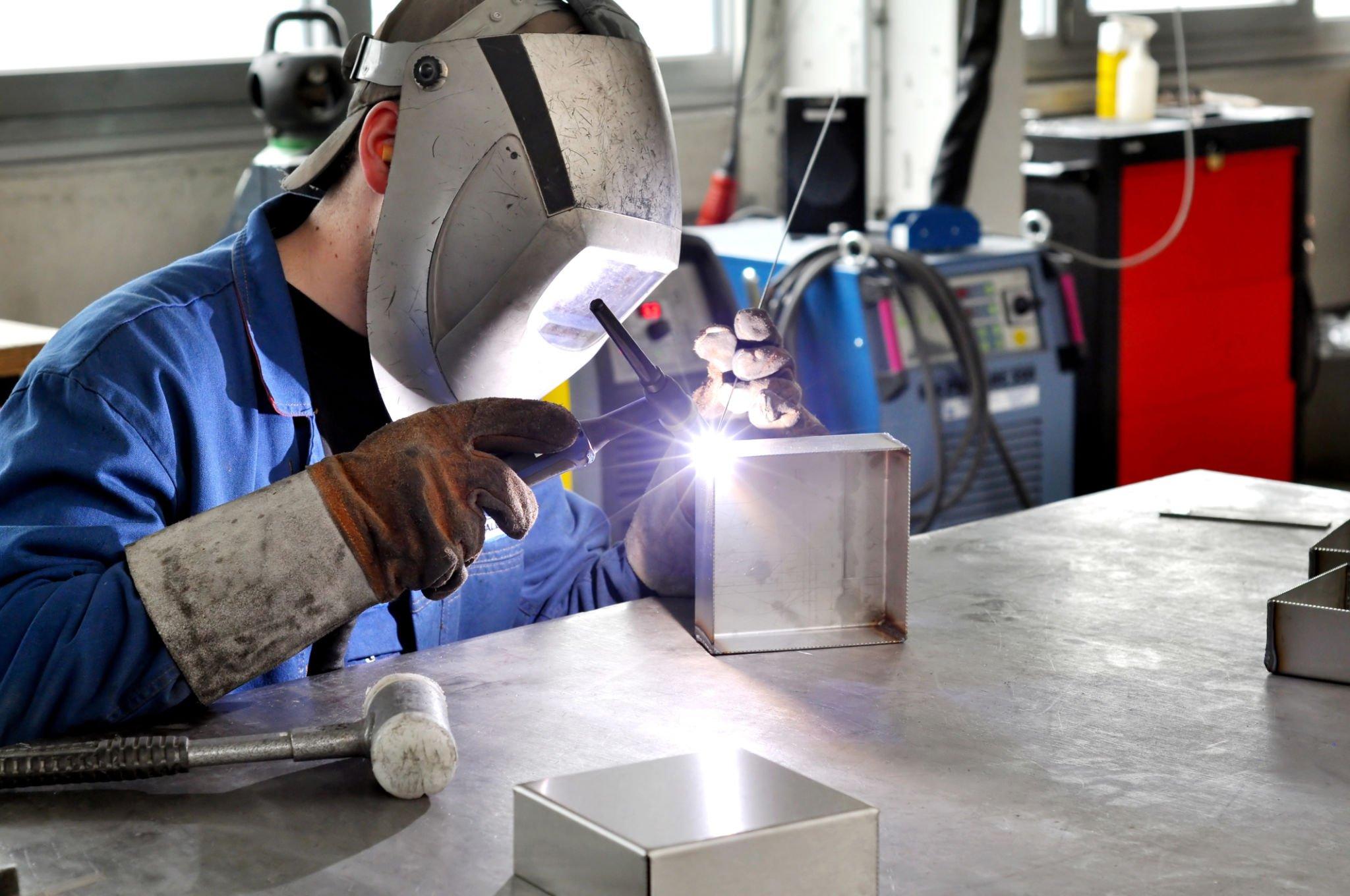Uncategorized
How to Start a Small Welding Business: A Step-by-Step Guide

Do you have a passion for welding and want to turn it into a profitable business? Starting a small welding business can be a great way to combine your love of metalwork with the satisfaction of being your own boss. Whether you’re an experienced welder looking to strike out on your own or someone new to the welding industry, this guide will walk you through the essential steps to starting a successful small welding business.
What is Welding?
Welding is a fabrication process that joins materials, usually metals or thermoplastics, by using high heat to melt the parts together and allowing them to cool, causing fusion. Welding is distinct from lower temperature techniques such as brazing and soldering, which do not melt the base metal (parent metal).
Welding is a versatile and useful process that can be used to create a variety of products. If you are interested in learning more about welding, there are many resources available online and in libraries. You can also find welding classes at community colleges and technical schools.
You May Like it: Welding Trailer Ideas: Right Trailer for Your Business Needs
Why Start a Welding Business?
Starting a welding business can offer several advantages for individuals who are skilled in welding or have an interest in the industry. Here are some reasons why one might consider starting a welding business:
- Passion for Welding: If you have a genuine passion for welding and enjoy working with metal, starting a welding business allows you to turn your hobby or passion into a profitable. It’s an opportunity to do what you love and make a living from it.
- Independence: Running your own welding business gives you the freedom to be your own boss. You have control over the projects you take on, the clients you work with, and the overall direction of your business.
- Flexibility: While starting and running any business requires hard work, it can also provide flexibility in terms of work hours and scheduling. You can tailor your business to fit your lifestyle and personal needs.
- Profit Potential: Skilled welders are in demand, and there’s a steady market for welding services in various industries, including construction, manufacturing, and repair. A successful welding business has the potential to generate a steady income and, in some cases, significant profits.
- Job Satisfaction: Seeing the tangible results of your work can be incredibly rewarding. Knowing that you’ve contributed to building structures, creating products, or solving problems through your welding skills can bring a strong sense of accomplishment.
- Expansion Opportunities: A small welding business can grow over time. You can start small, build a reputation, and gradually expand your services, hire additional staff, or even diversify into related areas.
- Meeting Local Needs: In some regions, there might be a shortage of skilled welders, creating a niche market for your services. Meeting the local demand for welding can make your business a valuable resource in your community.
- Job Security: As long as there is a need for metal fabrication and repair, skilled welders will be in demand. This can provide a level of job security, especially if you establish a solid reputation in the industry.
Of course, there are also some challenges to owning a welding business. Here are a few of the most common challenges:
- High start-up costs: Starting a welding business can be expensive. You will need to invest in welding equipment, tools, and safety gear. You may also need to rent a space for your business.
- Competition: There are many other welding businesses out there. This means that you need to be competitive in order to succeed. You need to offer high-quality welding services at a competitive price.
- Risk of injury: Welding is a dangerous activity. There is a risk of burns, electric shock, and exposure to fumes. You need to take safety precautions to protect yourself and others.
Overall, owning a welding business can be a rewarding experience. However, it is important to be aware of the challenges involved before you start your own business.
Steps to Start a Welding Business
Starting a welding business requires careful planning and execution. Here are the steps you need to take to start a welding business:
- Do your research. Before you do anything else, it’s important to research the welding industry and the market for welding services in your area. This will help you determine if there is a demand for your services and what types of welding services you can offer.
- Get certified. Getting certified is a great way to demonstrate your skills and knowledge to potential customers. There are many different welding certifications available, so you can choose one that is relevant to the type of welding you want to do.
- Get the right equipment. You will need to invest in some basic welding equipment, such as a welding machine, welding rods, and safety gear. You may also want to consider investing in a mobile welding rig if you plan on doing a lot of on-site work.
- Choose a business structure. You will need to choose a business structure for your welding business, such as a sole proprietorship, LLC, or corporation. This will determine how you are taxed and how you are protected from liability.
- Get the necessary permits and licenses. You will need to get the necessary permits and licenses from your local government in order to operate a welding business. This may include a business license, a welding permit, and a general liability insurance policy.
- Create a business plan. A business plan is a roadmap for your business. It will help you define your goals, set strategies, and track your progress.
- Market your business. Once you have everything else in place, you need to start marketing your business. This can be done through online and offline channels, such as creating a website, advertising in local publications, and networking with other businesses in your area.
- Set up your shop. If you are working from home, you will need to set up a dedicated workspace for your welding business. This workspace should be well-ventilated and free of flammable materials.
- Provide excellent customer service. Once you start getting customers, it’s important to provide them with excellent customer service. This will help you build a reputation as a reliable and trustworthy welder, and it will encourage customers to come back to you for future work.
Following these steps will help you start a successful welding business. However, it is important to remember that starting a business is a lot of work. It takes time, dedication, and hard work to be successful. But if you are passionate about welding and are willing to put in the effort, starting your own welding business can be a rewarding experience.
Here are some additional tips for starting a welding business:
Start small and grow gradually. Don’t try to do too much too soon, or you’ll risk getting overwhelmed. Start with a few basic welding services and then expand your offerings as you grow.
- Network with other welders and businesses in your area. This is a great way to get leads and learn from others in the industry.
- Be willing to learn new things. The welding industry is constantly changing, so you need to be willing to learn new techniques and technologies.
- Stay up-to-date on safety regulations. Welding is a dangerous activity, so it’s important to stay up-to-date on the latest safety regulations.
- Be patient. It takes time to build a successful welding business. Don’t get discouraged if you don’t see results immediately.
You May Like it:
How to Start a Beverage Company with No Money?
How to Start an Exotic Dancer Business: A Step-by-Step Guide
What License Do You Need to Start a Welding Business?
The specific licenses and permits required to start a welding business can vary based on your location (city, state, and country), the scale of your operations, the types of services you offer, and other factors. It’s essential to research the regulations in your area and consult with local authorities or a business advisor to ensure you have the necessary licenses and permits. However, here are some common licenses and permits that welding businesses might need:
- Business License: A general business license is typically required to operate any type of business within a specific jurisdiction. This license may be obtained from your city or county government.
- Trade License: Some locations require a specific trade or occupational license for welding services. This ensures that you have the skills and knowledge to perform welding work safely.
- Home Occupation Permit: If you plan to run your welding business from your home, you may need a home occupation permit. Zoning regulations may restrict certain types of businesses from operating in residential areas.
- Professional or Contractor’s License: Depending on your local regulations, you might need a professional or contractor’s license, especially if you plan to undertake larger projects or manage construction-related welding work.
- Fire Department Approval: Given the potential fire hazards associated with welding, some areas require approval from the fire department before you can start a welding business. This might involve safety inspections and compliance with fire codes.
- Environmental Permits: If your welding processes involve hazardous materials or emissions, you may need environmental permits to ensure proper handling, disposal, and air quality control.
- Sales Tax Permit: If your state or jurisdiction has a sales tax, you may need a sales tax permit to collect and remit sales tax on the products you sell or the services you provide.
- Federal Employer Identification Number (EIN): If you plan to hire employees or operate your business as a corporation or partnership, you’ll likely need an EIN, which is used for tax purposes.
- Health and Safety Permits: If your welding business involves employee safety or public safety concerns, you may need health and safety permits.
- Specialized Licenses: Depending on the nature of your welding work, you may need additional specialized licenses or certifications, such as welding certifications for specific industries or types of welding.
To ensure that you have all the necessary licenses and permits for your welding business, it’s best to contact your local government offices, such as the city or county business licensing department, and consult with legal or business advisors who are familiar with your area’s regulations.
How Much Does It cost to Start a Welding Business?
The cost to start a welding business can vary widely based on several factors, including the scale of your operations, the services you plan to offer, your location, the quality of equipment you purchase, initial marketing expenses, and whether you already have some welding equipment or need to purchase everything from scratch. It’s essential to create a detailed business plan to estimate your startup costs accurately. Here are some key areas to consider when estimating the costs:
- Equipment: You will need to invest in some basic welding equipment, such as a welding machine, welding rods, and safety gear. Depending on the type of welding you plan to do, you may also need to invest in more specialized equipment, such as a plasma cutter or a TIG welder.
- Space: You will need to rent or own a workspace for your welding business. The cost of space will vary depending on the size of your business and the location of your business.
- Insurance: You will need to purchase general liability insurance and workers’ compensation insurance. The cost of insurance will vary depending on the size of your business and the risks associated with your welding work.
Yu can check this article: Welding Business Insurance: What You Need to Know
- Marketing: You will need to invest in marketing your welding business. This could include creating a website, advertising in local publications, and networking with other businesses in your area.
- Other costs: There are a number of other costs associated with starting a welding business, such as permits and licenses, business registration fees, and accounting fees.
Final Thought
Starting a welding business is a journey that combines skill, determination, and a passion for craftsmanship. By following the steps in this article, you can turn your love for welding into a thriving business. Remember, it’s not just about the metal you work with; it’s about the relationships you build and the impact you make in your industry. With dedication and a commitment to excellence, your welding business can be a source of pride and a path to success.


















